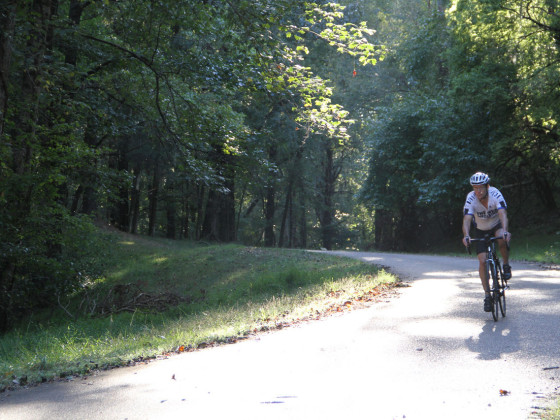1. Choose your own adventure at Tishomingo State Park
In the Appalachian Mountain foothills north of Tupelo, and named after a Chickasaw Nation chief, Tishomingo State Park is full of outdoor potential. From canoeing to rock climbing, fishing to hiking, visitors at Tishomingo can stay active year-round at the 1,530-acre park. Tishomingo was also once home to Paleo-Indians whose artifacts dating back to 7,000 BC have been discovered here. The Natchez Trace Parkway (see below) crosses directly through the park.
The Civilian Conservation Corps constructed the park during the 1930s. Along with the natural beauty and outdoor sporting options, there’s a disc golf course and Olympic-sized pool open in the late spring and summer. For those who want to stay overnight or for an extended trip, there are 62 campsites and seven cabins to reserve.
2. Bike the Natchez Trace Parkway and stop at historic landmarks
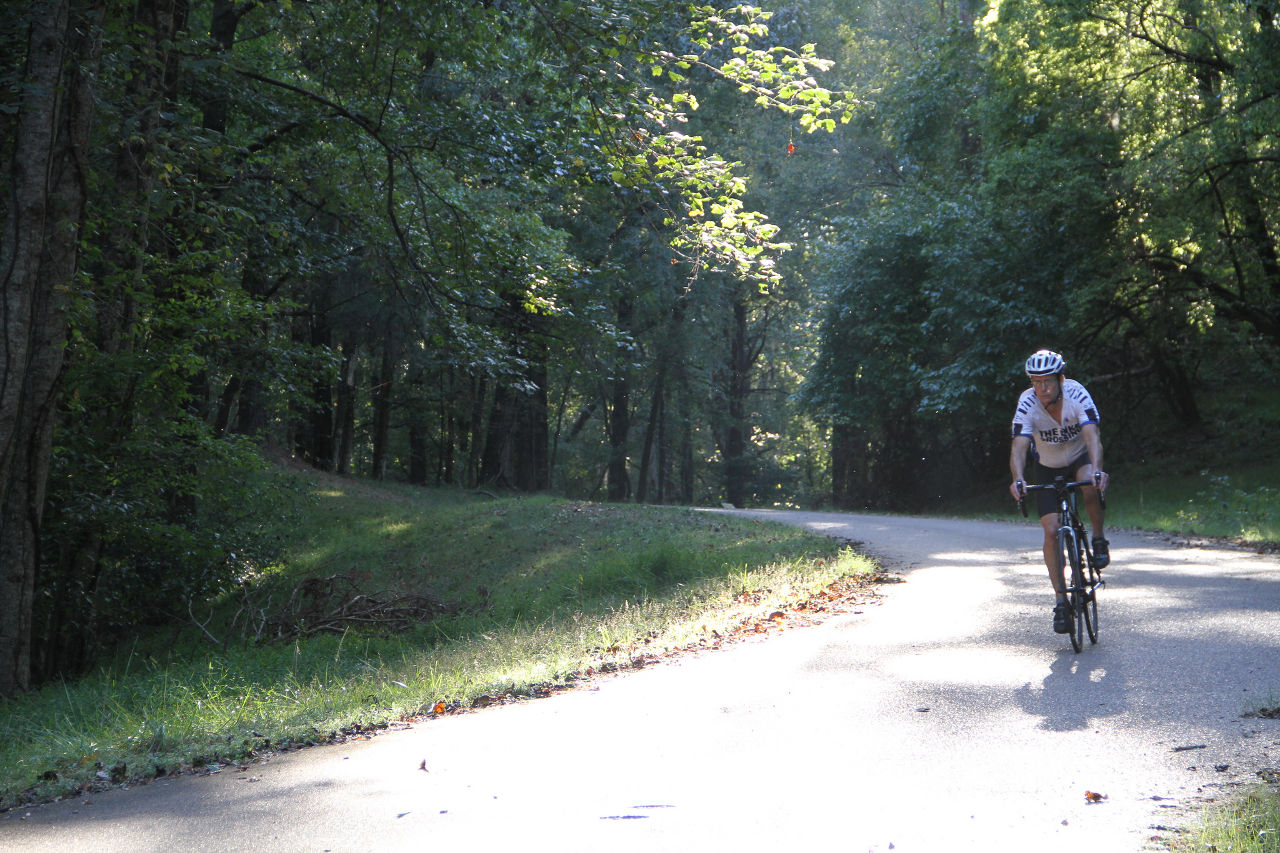
Photo: Visit Mississippi
Traversing three states, the Natchez Trace Parkway spans 300 miles of Mississippi and entices cyclists with its bucolic scenery and historic sites. Bicycle-only campgrounds and cyclist-friendly bed and breakfasts offer ideal accommodations along the journey.
On the first leg of your ride, stop at the 8-acre prehistoric Emerald Mound and visit the Mount Locust Historic House, where tired traders and travelers paid to eat and rest beginning in the late 18th century. Walk the footsteps of thousands before you on the often photographed Sunken Trace — a trail receding below ground level from centuries of foot, animal, and wagon traffic. Continue to the abandoned town of Rocky Springs.
Between Jackson and Tupelo, stop to check out the picturesque Ross Barnett Reservoir, and look out for alligators as you wander the elevated boardwalk paths at Cypress Swamp. Then imagine life thousands of years ago at the Bynum Mounds archeological site and historic burial ground, followed by the Chickasaw Village Site.
Before reaching the Alabama state line, learn more about the history and culture of the area at the Natchez Trace Parkway Visitor Center in Tupelo, open every day. Continue on to the grave sites of 13 Confederate soldiers along the Old Trace, and see the Pharr Mound site, which dates back to the Middle Woodland period.
3. Live it up on an old cotton farm
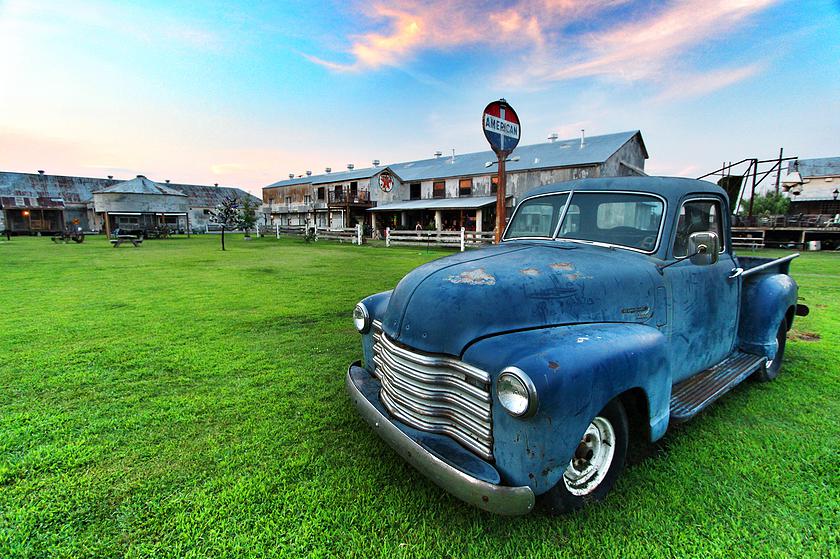
Photo: Shack Up Inn
Mississippi offers guests behind-the-scenes glimpses of its agricultural history with farm tours, wagon rides, and the opportunity to stay in an old sharecroppers’ dwelling. The Shack Up Inn, located on the Hopson Plantation in Clarksdale, lies 3 miles from the crossroads where musician Robert Johnson is said to have sold his soul to the devil in exchange for becoming a legendary bluesman.
Artists, blues lovers, and history buffs converge at the Shack Up Inn, where the refurbished shacks offer a rustic Mississippi Delta lodging experience. “The Ritz we ain’t,” inn owners Bill Talbot and Guy Malvezzi say. While the inn strives to provide an authentic look into plantation life, it does offer modern amenities such as air conditioning, indoor bathrooms, and Internet access.
The Hopson Plantation also features an original cotton gin and seed houses, along with one of the first mechanized cotton pickers. For a local blues experience, drive 10 minutes to Red’s Lounge and Morgan Freeman’s Ground Zero Blues Club.
4. Go on a Civil Rights driving tour through Jackson
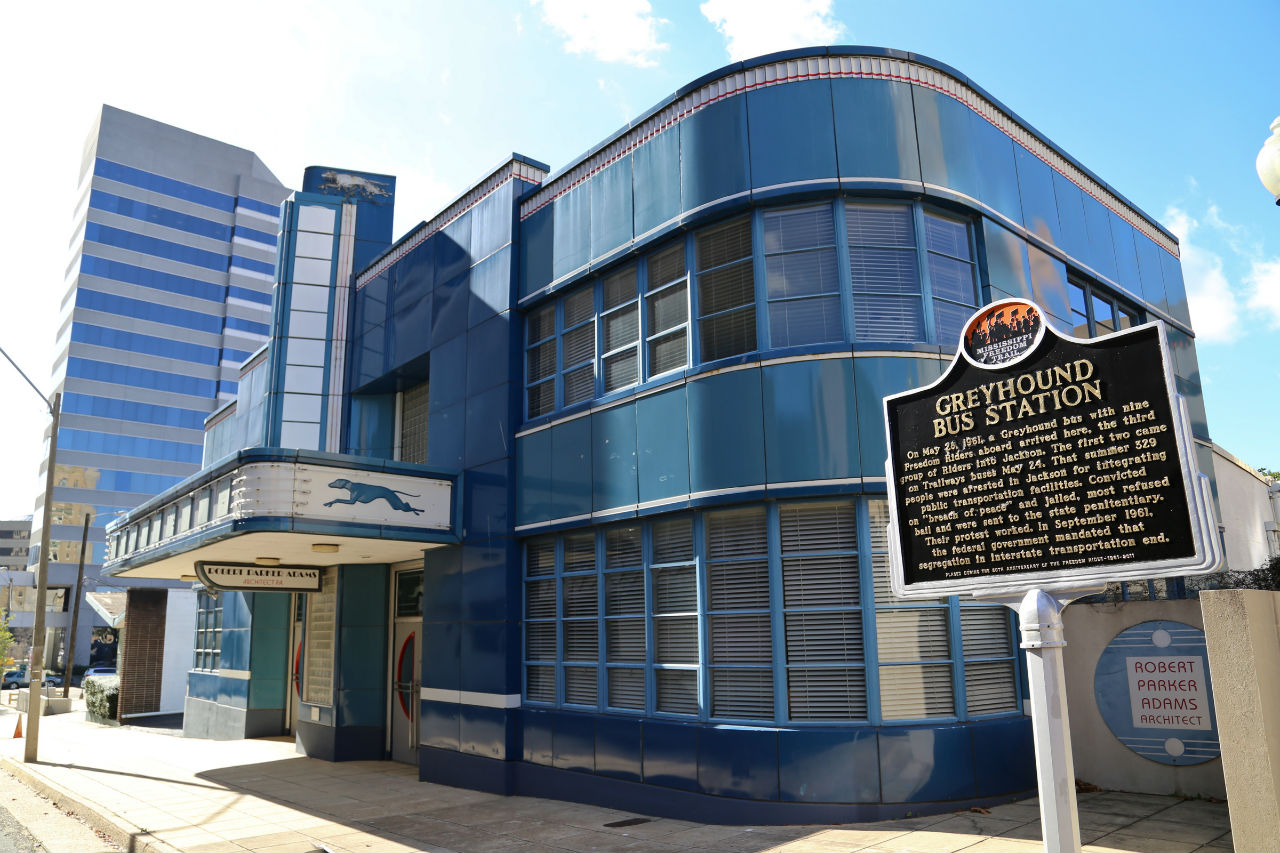
Photo: Visit Mississippi
Mississippi was at the heart of the fight for racial equality during the Civil Rights movement. The capital city of Jackson, which is also home to four markers on the Mississippi Freedom Trail, offers a driving tour featuring 81 sites that have played a role in the movement over the span of four decades. Covering four different parts of the city, the tour kicks off at the Smith Robertson Museum and Cultural Center in downtown.
Rich with African American history, the driving tour includes local schools, Jackson State University, and Tougaloo College, along with historic churches such as the Central United Methodist Church. You can stop to see the former home of slain NAACP Field Secretary Medgar Evers, and the Margaret Walker Alexander National African-American Research Center. This itinerary will not only get you out and about, but also inspire you to reflect on history.
5. Tour the swamplands and see the wildlife
Traipse through Southern Mississippi’s cypress swamps and salt marshes on a guided tour of the Pascagoula River, the largest free-flowing river system in the Lower 48. Launching from the Pascagoula River Audubon Center in Moss Point, McCoy’s Swamp and River Tours offers interpretative tours, guiding visitors through “moss-draped trees and abundant wildlife.” Guests are likely to see a variety of bird species — and alligators — on their swampland adventures.
The Audubon Center, reopened in fall 2015, facilitates nature-based programming for students, naturalists, and tourists. In partnership with other Mississippi Gulf Coast organizations, the center has helped to revitalize the Mississippi Coastal Birding Trail, a web-based guide for bird watchers. Throughout a six-county coastal region, visitors may come across more than 389 species of birds at 40 different birding sites. Among the trail’s suggested “must see” species are the tri-colored heron, reddish egret, and Mississippi sandhill crane.
6. Take the Mississippi Blues Trail Geocaching Challenge
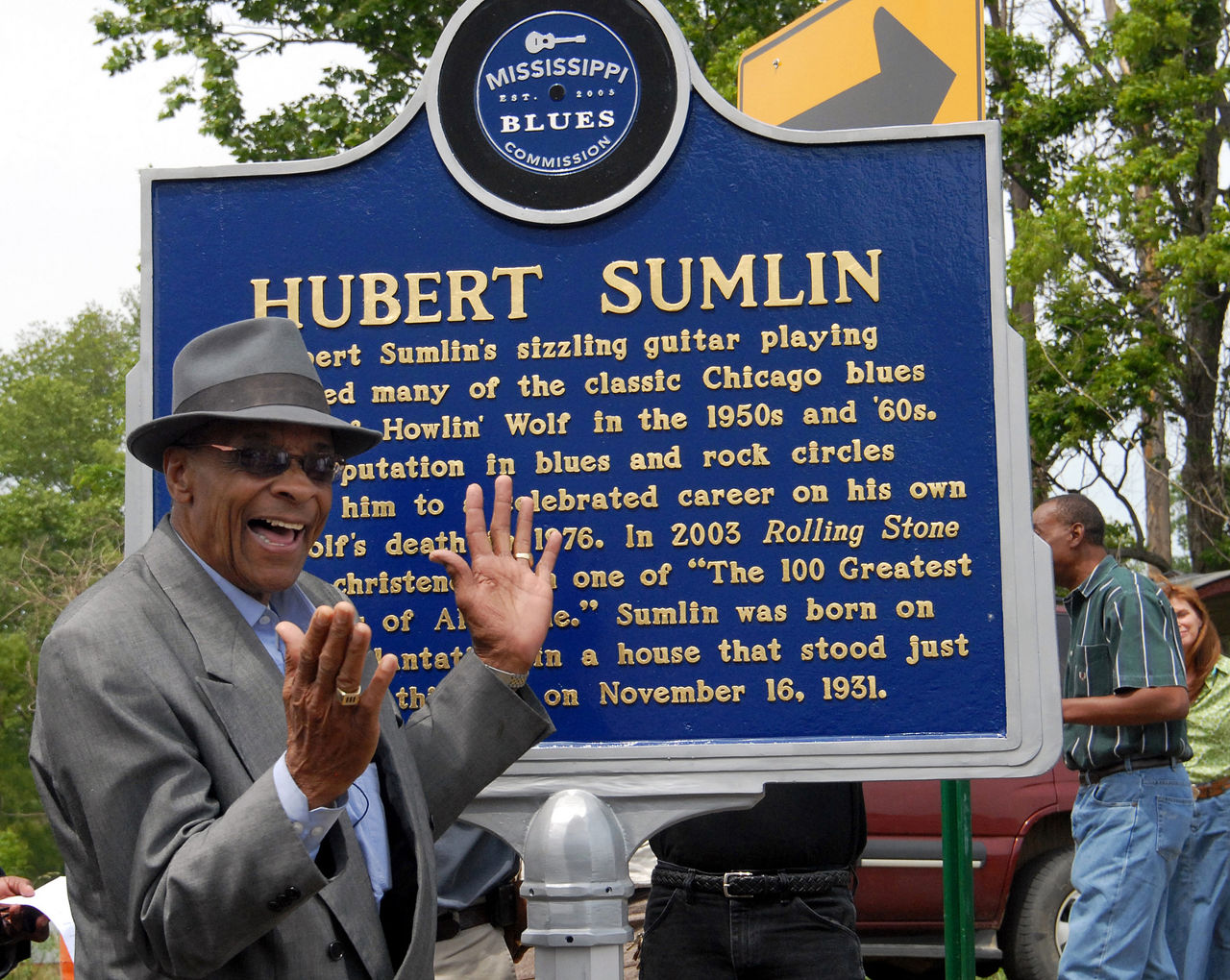
Photo: Visit Mississippi
Geocaching is a trending recreational game that allows participants to explore the sites around them while engaging in a modern treasure hunt using GPS. Embark on your next geocache challenge while honoring Mississippi’s blues heritage with the Mississippi Blues Trail Geocaching Challenge.
The challenge requires visiting 50 Blues Trail Markers in the state — signs primarily found in the Delta that highlight Mississippi blues history — and finding their corresponding geocaches. Sign each log book and log your geocache finds on the official geocaching.com website. Adventurers who complete this challenge will receive a free geocoin through three sponsoring Mississippi organizations. The Vicksburg National Military Park (see below) also offers a geocaching tour, along with Desoto County.
7. Follow Ulysses S. Grant’s Vicksburg Campaign Trail

Photo: Visit Mississippi
The Vicksburg National Military Park and Vicksburg Visitors Center offer brochures detailing the Campaign and Siege of Vicksburg, inviting visitors to take a step back in time through a self-guided driving tour of Grant’s successful Union Army campaign.
With 30 historically significant sites throughout the region, such as the Ruins of Windsor, the trail is basically a 136-mile history lesson for both everyday citizens and Civil War enthusiasts. A free Vicksburg Battle App allows iPhone and Android users to follow the trail on their cell phones. Each year, Vicksburg hosts Civil War-themed events, including living history programs and a history-themed road run.
8. Step aboard one of the famous Biloxi Schooners or the Ship Island ferry for a relaxing day on the water
For a historic experience with a modern twist, sail away on one of the Biloxi Schooners, functioning replicas of vessels that sailed the coast between the late 1800s and early 1900s. Affectionately known for the “majesty of their white wings,” replicas the Glenn L. Swetman and the Mike Sekul sail the Mississippi Gulf Coast hosting tour groups, educational events, and special celebrations. Bring your own refreshments, if you’d like, and enjoy gorgeous views of the coastline and barrier islands.
After checking out the schooners, take a 10-mile ferry excursion to Ship Island, part of the Gulf Islands National Seashore and home to Fort Massachusetts — a fortification used during the Civil War. Swimmers, snorkelers, and boogie boarders come for the island’s beaches, and you may just spot dolphins on the ferry ride.

